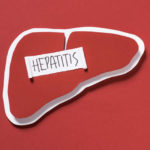Treatment Approved for Kids With Hepatitis C
Schering-Plough hepatitis C drug approved for kids
By LINDA A. JOHNSON
TRENTON, N.J. (AP) — The first high-tech, long-acting treatment for hepatitis C in children, a two-drug combination from Schering-Plough Corp., has been approved by the Food and Drug Administration.
Schering-Plough said Friday that FDA had approved sales of a treatment combining its antiviral pill, Rebetol, with its PEG-Intron, an advanced, genetically engineered version of the immune system protein interferon, for children age 3 to 17 infected with the hepatitis C virus.
An estimated 130,000 American children are infected with hepatitis C, with most of them acquiring it from an infected mother while in the womb. Some adolescents are infected with the liver-destroying virus through illegal drug use that involves sharing contaminated needles or by getting tattoos or body piercings at establishments with poor hygiene.
Many adults and even some children don’t know they are infected because hepatitis C can display no obvious symptoms for years, but it often is spotted when a patient has blood testing for something else.
Earlier versions of interferon drugs, which are widely used in adults to treat chronic hepatitis C, had to be injected three times a week. PEG-Intron, available for several years now, has a technology called pegylation that allows the drug to circulate in the bloodstream much longer.
“This treatment is a little more effective than (the older one) and only involves one shot a week,” said Dr. Jean P. Molleston, a pediatric hepatitis C expert at Indiana University School of Medicine who has participated in industry-funded research.
She said FDA approval is important because while some hepatitis specialists have prescribed the pegylated interferon to children and adolescents off label — without official approval, which is legal — many more doctors will feel comfortable doing so now, given the potentially serious side effects of the drugs.
Until now, only Schering-Plough’s older interferon drug, Intron A, was officially approved for children in this country. The new approval includes a liquid version of ribavirin for younger children.
Patient testing that led to the approval showed the virus was cleared from 55 percent of the children with the most difficult-to-treat strains of hepatitis C, most of whom had a strain called genotype 1, the type carried by about 70 percent of U.S. hepatitis C patients. Children in that arm of the study were treated for just under a year. In children with less-common, less-resistant strains, 96 percent had the virus cleared from their blood; they were treated for six months.
The study, which included a total of 107 children, was funded by Schering-Plough, which is based in Kenilworth, N.J.
While 55 percent seems disappointing, Molleston noted that the first interferon drugs helped only 15 of patients.
Testing of the older Intron A found it worked in only 36 percent of children with the toughest strain and in 81 percent with easier-to-treat strains.
Children with hepatitis C should be treated by doctors familiar with these drugs because of their serious side effects, some of which require dose adjustments, and very young children should not get them, Molleston said.
She previously participated in research for Schering-Plough and recently participated in a hepatitis C study of a rival drug for children, not yet approved, from the Roche Group.
Ribavirin causes anemia and can cause birth defects or kill a fetus, so pregnancy must be avoided in both female patients and female partners of male patients taking it.
PEG-Intron’s side effects include weight loss and stunted growth, which can persist for months after treatments, as well as fever, vomiting, headaches, anorexia, fatigue and a drop in infection-fighting white blood cells.
Even so, “children tolerate these drugs much better than adults,” Molleston noted.
According to Schering-Plough, only 2 percent of children in the study stopped treatment early.
Schering-Plough shares rose 83 cents, or 5.2 percent, to close at $16.89 Friday. The company’s shares are set be added to the S&P 100 Index after trading closes.
Copyright © 2008 The Associated Press. All rights reserved.
—
URL for Article Source:
http://www.google.com/hostednews/ap/article/ALeqM5hGR26NvNp0mBpQa79Z
_JNiPu0kkgD951F3180







